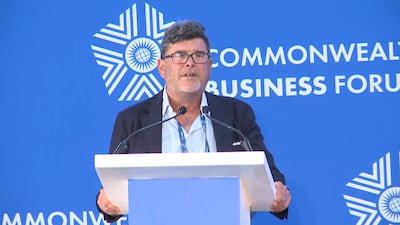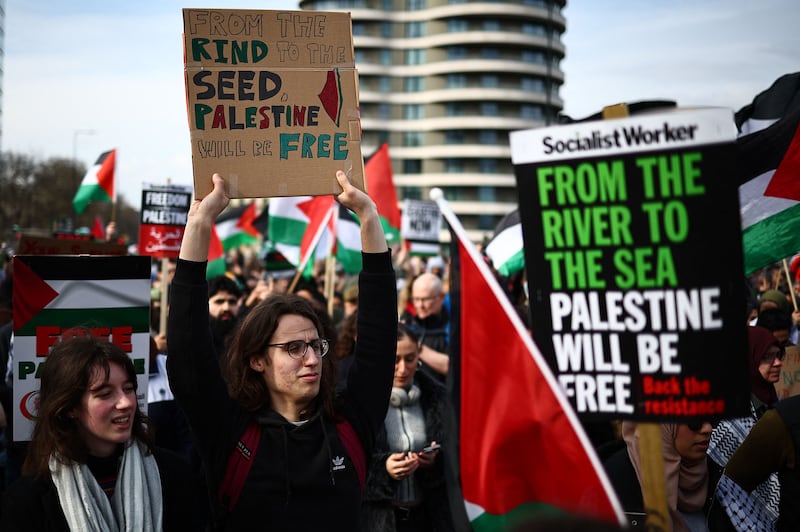Barry Goldwater, the 1964 Republican Party presidential candidate in the US, came up with a memorable quote. “Extremism in defence of liberty is no vice,” he said. Mr Goldwater was defeated by Lyndon Johnson, but that quote resonates in Washington even today.
The problem is what does “extremism” mean? Former British prime minister Tony Blair tried to define it after the 2005 terrorist bombings of London. He failed. David Cameron, one of his successors, promised to ban extremism but – again – without a legal definition, it was just political rhetoric and not a legally watertight policy.
Britain is again repeating this exercise in futility. The current government, which recently unveiled an updated definition, has been alarmed by what it sees as an “increase” in extremism. But while terrorist acts by extremists fall foul of the law, defining extremism itself resurrects that long-term problem.
The minister involved, Michael Gove, is hard-working and clever. He has also been careful, suggesting that various groups, including those on the far right, fall foul of the new definition. And yet much of the debate has focused on conduct by a handful of protesters at pro-Palestinian marches chanting words that some find offensive as a result of the humanitarian catastrophe in Gaza.
But is being “offensive” in the eyes of some people the same as being “extreme”?
All over the world, we have witnessed heated discussions about what is legitimate or otherwise in protests about Gaza after the attacks on Israel last October. This is a political tinderbox. Various groups claim that others they dislike are “extremists”. That negates reasoned discussion.

The heated rows even reached the Oscars. One of the finest films I have seen in years is The Zone of Interest, the story of the family of the Auschwitz camp commandant supervising the atrocities of the Holocaust.
The genius of the film is to ensure that you do not see the horrors directly, although the soundtrack makes sure you know what is going on. The director Jonathan Glazer (who is Jewish) focuses on the humdrum trivialities of domestic life in the commandant’s family. In an insightful phrase from the German intellectual Hannah Arendt, The Zone of Interest illuminates “the banality of evil”.
When receiving his Oscar for Best International Film, however, Mr Glazer made a speech that some Jewish groups criticised as “morally indefensible” and “reprehensible”. He said that “our film shows where dehumanisation leads at its worst”. But then he added: “Right now, we stand here as men who refute their Jewishness and the Holocaust being hijacked by an occupation which has led to conflict for so many innocent people. Whether the victims of October the 7th in Israel, or the ongoing attack on Gaza, all are victims of this dehumanisation.”
For some Oscar watchers, this was common sense. For others, appallingly insensitive. Britain’s Jewish Chronicle newspaper was scathing, pointing out that many Jewish people feel frightened by growing anti-Semitism, what they hear as “extremist” chants, slogans and activities. Others perhaps believe that Israel is merely a democracy practising Mr Goldwater’s “extremism in defence of liberty” against Hamas.
Whether you agree or disagree with Mr Glazer, it’s extraordinary that the talented, Oscar-winning director of one of the most moving (and revealing) films about the Holocaust – and who himself is Jewish – is now part of this polarising debate.

Does Mr Glazer have offensive views? Does this offer support for “extremism”? He is certainly not advocating violence. Do some of his vocal critics have views that others might see as “extreme”? I have no idea, but plenty of far-from-extreme people have criticised Mr Glazer’s remarks, including the much-respected British historian Simon Schama.
The problem with defining “extremism” is that like ugliness or beauty, it is in the eye of the beholder. Calling something “extremism” may depend on facts, but also on opinion and nuance. Context is everything when evaluating words, chants and off-the-cuff comments.
Frank Hester, the multimillionaire British businessman and donor to the Conservative party, is much in the news in Britain now after hugely offensive remarks he allegedly made about Diane Abbott, a black woman Labour MP: “It’s like trying not to be racist but you see Diane Abbott on the TV, and you’re just like … you just want to hate all black women because she’s there. And I don’t hate all black women at all, but I think she should be shot.”
Definitely offensive comments, plus hugely ill-advised and profoundly upsetting when British MPs have recently been murdered and under threat from genuinely violent people. But saying stupid and even horrible things is generally not a crime in Britain. And its government defining extremism in watertight terms is probably destined to fail as it did several times before.
We can all have opinions about Mr Glazer and Mr Hester – two hugely successful men in very different careers – but defining extremism just because you don’t like what people say is a fool’s errand.
Since Mr Gove is no fool, he possibly knows that his government’s recent announcement was just another distraction from the country’s real problems. A better use of his time would have been to watch The Zone of Interest. We all need to learn how banal evil can be.





